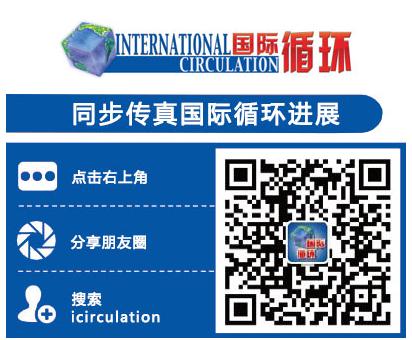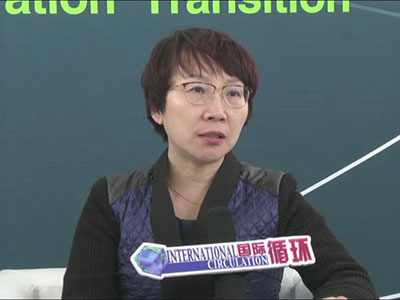[ESH2007]ESH2008候选主席Laurent教授:动脉僵硬度评估高血压
作者:国际循环网 日期:2007/8/1 11:57:00
国际循环网版权所有,谢绝任何形式转载,侵犯版权者必予法律追究。
Professor of Clinical Pharmacology
H pita Européen Georges Pompidou, Paris, France
Stéphane Laurent is Head of the Department of Clinical Pharmacology at the H?pita Européen Georges Pompidou in Paris and also Professor of Pharmacology at ’Rene Descartes’ Medical School, Paris 5, France. In addition, he leads a team on vascular and renal physiology and pharmacology at INSERM. Areas of interest and expertise include arterial hypertension and cardiovascular diseases as well as clinical investigation and pharmacology of large arteries. A member of several international scientific societies, such as the Artery Society, for which he is Vice-President, and ISH, Professor Laurent serves on the Council of ESH and the Scientific Council of the French Federation for Hypertension Research.
During his career, Professor Laurent has lectured widely on his areas of expertise and has published more than 200 original papers in refereed journals, 60 review publications including editorials and book chapters, and 350 reports, including abstracts. He currently serves on the editorial boards of Hypertension and the Journal of Hypertension.

《International Circulation》: Thank you, Prof. Laurent. I represent International Circulation. Very glad to meet you and thank you very much to give us your interview.
My first question is: From the meta-regression analysis, researchers demonstrated the blood pressure lowering is the key in cardiovascular prevention, more than special properties of anti-hypertensive agents. Does it mean that over and beyond blood pressure lowering effects of anti-hypertensive agents isn’t very important as those other classes of anti-hypertensive drugs which have lower blood pressure effects and can be used more widely than before?
谢谢Laurent教授, 我代表《国际循环》采访您。很高兴见到您,谢谢您接受我们的采访。我的第一个问题是:从荟萃分析的结果来看,您和其他研究人员的研究结果都表明预防心血管疾病的关键是降低血压,而不是降压药物的一些特殊作用。这是不是意味着有特殊非降压作用的降压药还不如降压作用更强的普通降压药呢?是不是应该主张更多地使用后者呢?
Prof. Laurent: This is a very important point because with meta-analysis we determine the amount of risk that you can lower in proportion with lowering the systolic blood pressure. So the higher the reduction in systolic blood pressure, the higher the reduction of risk. And this is true for many, many drugs. So now you can compare different therapeutic classes according to that scheme. The conclusion is that clearly about 80 percent of the protective effect of anti-hypertensive drugs is done by lowering blood pressure. And then there are some differences. For instance, when you compare calcium channel blockers and ACE inhibitors for the same level of reduction in the systolic blood pressure, you are a little bit more effective on stroke with calcium channel blockers; you are a little bit more effective on coronary heart disease and heart failure with ACE inhibitors. You may be aware of the controversy between ACE inhibitors and ARB. Indeed, a similar kind of meta-analysis that has been done, which shows that although a very large percentage of protective effect was obtained by lowering blood pressure, beyond that there is for ACE,inhibitors, but not ARB, evidence of blood pressure-independent effects on the risk of major coronary disease events.
这一点很重要,因为根据荟萃分析的结果我们得出结论认为患者危险因素的降低程度是与患者收缩压的降低程度成正比的。所以收缩压降的越低,患者的患心血管疾病的危险性就越小。这个规律适用于很多很多药物。那么现在你可以按照这个规律来比较不同类别的治疗药物。当然这种比较得出的结论是会受到荟萃分析的一些陷阱的限制的,降压药物约80%的保护效果是来自其降压本身的作用。但是各种类别的药物之间还是有很多差异的。比如,如果你比较钙离子通道阻滞剂和ACE抑制剂,你会发现在降低同样程度收缩压的情况下,钙离子通道阻滞剂对卒中患者更有效,而ACE抑制剂对冠心病和心衰患者更有效。另外,你也知道ACE抑制剂和ARB的选择之间一直存在争议,事实上,这方面也开展了类似的荟萃分析。结果显示这两种药物的绝大部分保护作用都是通过降低血压来实现的,只有ACE抑制剂具有一些非血压依赖性的降低主要心血管事件危险性的作用。
《International Circulation》: OK, thank you. My next question is regarding to the guideline: It was reported by an article of Britain Medical Magazine in 2004 that angiotensin antagonists (ARBs) might increase the risk of Myocardial Infarction. From then on, the safety of ARBs has been received increasing attention. However, the result of JIKEI HEART study showed that there was no mortality benefit, including cardiovascular mortality, nor was there a reduction in the risk of MI by conventional therapy plus ARB (valsartan) last year. How to evaluate the relationship of between ARBs and myocardial infarction? Do you think that ARBs may increase the risk of myocardial infarction? How to explain the possible mechanism within?
myocardial infarction? How to explain the possible mechanism within?
好的,谢谢。下一个问题是关于新版指南的:2004年英国医学杂志的一篇文章认为ARB可能增加急性心肌梗死发生率,自此对于ARB应用安全性引起大家的关注,而去年公布的JIKEI HEART研究中,ARB对于心肌梗死发生率的影响为中性。如何看待ARB与心肌梗死的关系?ARB是否会增加心肌梗死的发生?如何解释可能的机制?
Prof. Laurent: So this is exactly along what we have just said before. The only way for the moment is to pool all the studies, small and large, to get the largest number of patients, to get the highest statistic power. And if you do that, I’m also quoting the meta-analysis done by the BPLTC—blood pressure lowering Trialists Collaboration published in Journal of Hypertension at the beginning of this year. They showed very clearly that with ARB, the lower the systolic blood pressure, the lower the reduction in risk. So, among 100 percent, at least 90 percent of the job is done by lowering blood pressure. And ARBs are able to be used in coronary heart disease, fatal or not fatal. And remember the LIFE study: there was a clear reduction in coronary heart disease. Of course, compared to Atenolol, the difference was not significant different because Atenolol is a very powerful and therefore active treatment. But if you compare these pharmacological classes to the placebo, then there is a significant reduction. What they concluded is that compared to ACE inhibitors, ARB may not offer protective effect on coronary heart disease beyond blood pressure lowering. However, ARB have protective effect related to blood pressure lowering, and this is very important. ARBs are very good drugs in preventing cardiovascular events, preventing stroke and preventing coronary heart disease, but for none of them, it is possible for the moment to unmask the effect which is independent of blood pressure lowering.
这正好是我们刚才讨论的话题的延续。(针对你说的上述争议)目前我们唯一能做的就是将所有研究的结果汇集起来,无论大小试验,汇总大量患者,得到最权威的统计学结果。我也是引用BPLTC-降压治疗试验协作组的荟萃分析结果,这一结果今年年初发表在《Journal of Hypertension》上。分析的结果清楚地表明,用ARB治疗时患者的收缩压越低,其患(心血管)病的危险性越小。所以这种药物的作用中至少90%的部分是通过降低血压来实现的。而且ARB适用于冠心病患者,无论是致命性还是非致命性的冠心病。另外,记得LIFE研究中:受试者冠心病的发病率明显下降,尽管和阿替洛尔相比,这种效果并没有明显的优越性。但这是因为阿替洛尔也是一种很强大的降压药,可以算作活性对照治疗。如果你把这种类别的药物(ARB)和安慰剂相比的话,就会发现患者(冠心病发病率)明显下降。所以研究人员得出的最终结论就是,与ACE抑制剂相比,ARB之所以对冠心病有预防作用只是因为其降压效果而没有别的特殊作用,但ARB确实有与降低血压相关的保护作用,这一点是非常重要的。ARB是一种很好的药物,可以预防心血管事件,可以预防卒中,可以预防冠心病,但这些作用都是通过降低血压来实现的,我们应该清醒地认识药物与降低血压无关的特殊作用。
《International Circulation》:It was mentioned for the first time that β-blockers are no longer preferred as a routine initial therapy for hypertension in British Hypertensive Society Guidelines 2006. How to comment the current status of β blockers in hypertension treatment? How to use β blocker? When and Who? Are β blockers still the initial therapy for hypertension?
2006年英国高血压指南中,第一次提出了β受体阻滞剂不再是多数高血压患者的首选降压治疗药物。如何评价β受体阻滞剂治疗高血压的临床地位?β受体阻滞剂应该如何使用?何时应用?哪些为适应人群?β受体阻滞剂是否还应作为降压治疗的一线用药?
Prof. Laurent: In the new guidelines, we try to maintain β blockers as anti-hypertensive drugs for the patients as first-line therapy. And we give some word of caution. Because of the meta-analysis showing that β blockers in general and Atenolol in particular may not be as effective as other anti-hypertensive drugs, because of the LIFE and ASCOT trials which show that atenolol and thiazides are less effective than the amlodipine an






 京公网安备 11010502033353号
京公网安备 11010502033353号